
Eagle Feathers #234 – The Battle of Winter Hill
By Bob (Monty) Doherty
On September 1, 1774, residents of Winter Hill witnessed 260 of King George’s British troops disembark from the Mystic River and march over the hill to attack the Powder House.
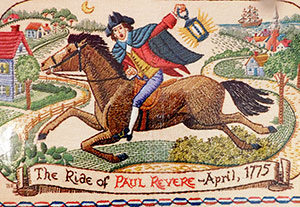
This was the first hostile aggression of the Revolutionary War. It preceded the Battle of Lexington and Concord by nine months. The residents of this area witnessed or were part of
- The British chase of Paul Revere
- The Battle of Lexington and Concord that ended in Somerville and Winter Hill
- The Battle of Bunker Hill that ended in Somerville
- The Siege of Boston
- An American Revolutionary War training camp
- A German/Hessian prisoner of war camp
- A British prisoner of war camp
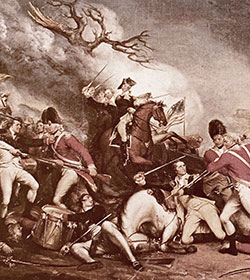
For over half of the eight–year war, Winter Hill residents suffered greatly. For the rest of the revolution, they were not called upon, but they chose to serve nevertheless. On June 17, 1775, New England’s volunteer patriots fought toe-to-toe at Bunker Hill against the best-trained troops in the world. After opposing three assaults and inflicting terrible losses on the enemy, the Americans ran out of gunpowder and were forced to withdraw to today’s East Somerville and Winter Hill.
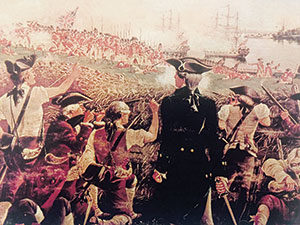
At that time, news traveled slowly. General Washington was making his final preparations for departure from Philadelphia to take command of the newly-formed Continental Army around Boston. He was leery of leading the Colonials, believing that Lexington and Concord were only skirmishes. Then, upon hearing of the appalling losses the New England militia inflicted on the English, 1,054 British losses versus 441 American losses, he proudly determined that he would lead these men. The message which first alerted General Washington came from Captain Elijah Hide of Lebanon, New Hampshire, who was a spectator on Winter Hill during the entire action.
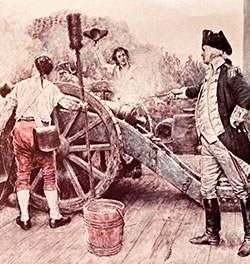
His account, the first to reach General Washington, follows and was printed in many newspapers including the New York Gazette on June 26, 1775.
“The American forces retreated across the cause-ways to Winter Hill, sustaining their principal loss in passing the causeway. The enemy pursued our troops to Winter Hill, where the provincials, being reinforced by General Putnam renewed the battle with great spirit, repulsed the enemy with great slaughter and pursued them till they got under cover of their cannon from their shipping, when the enemy retreated to Bunker’s Hill and the provincials to Winter Hill where, after entrenching and erecting batteries, they on Monday began to fire upon the regulars on Bunker’s Hill and on the ships and floating batteries in the harbor.”
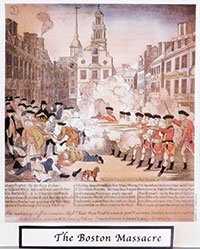
Sir Robert Temple was a Royalist. During the battle, possession of his Temple Mansion at Ten Hills see-sawed back and forth. In the end, the Americans won Winter Hill back. With the carnage at Bunker Hill, the bloodiest battle of the Revolutionary War, the actions at the battle of Winter Hill were reduced to a footnote.
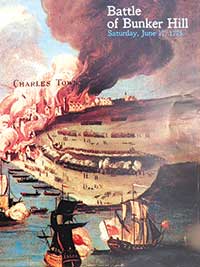















Reader Comments